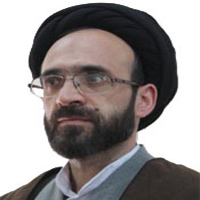Validation and Analysis of the Proposition "There is No Good in Extravagance, and There is no Extravagance in Goodness"
One of the propositions involved in identifying extravagance is the famous saying, "There is no good in extravagance, and there is no extravagance in goodness." The first part is unanimously agreed upon by all Jurisprudents, leaving no room for debate; so, the discussion in this paper focuses on the second part of the proposition. The objectives of this study include examining the validity of attributing this saying to the Prophet (PBUH) and the Apostolic Imams (AS), reinterpreting the concepts of "extravagance" and "goodness" for analyzing the proposition, and assessing its alignment with religious teachings. The findings , based on library research and a descriptive-analytical method, indicate that there is no clear source for this text in Hadith Collections, although its content is accepted. The proposition implies that if an action leads to proximity to Allah and became pure goodness, there cannot be extravagance—which signifies crossing divine boundaries—within that action. Excessive spending to preserve oneself or others is one of the instances of expansion in the concept of goodness", and in cases of doubt regarding the goodness of an action, caution should lead to refraining from the act.
-
Documentary analysis and brokering of the hadith of knowledge about Imam Reza (pbuh)
MOHAMMAD SADEGH RAMZI KHALES *, Sayyed Mahmoud Marvian Hussaini, , Hossain Thanavi
Journal of Razavi Culture, Summer 2025 -
An Investigation into the Perspective of the Author of Qabasāt min ʿIlm al-Rijāl Regarding the Praise and Criticism Narrations of “Muḥammad ibn Sanān”
Ehsan Nazari *, Fatemeh Zahra Amiri, Seyed Ali Delbari
Journal of Hadith doctrines, Winter and Spring 2023 -
Evaluation of the Traditions of Yūnus ibn Ẓibyān Ẓibyān in Al-Kāfī Based on Source Retrieving’s Method
Seyyed Soleyman Mousavi, Muhammadebrahim Roshanzamir *,
Hadith Studies, -
Analyzing the Influence of the Rulers on People's Religiosity with an Emphasis on the Story of Prophet Moses and Pharaoh
Seyed Abolqasem Hosseini Zeydi, Mohammadebrahim Roshan Zamir, Mohsen Kabiri*
Journal of Understanding Quran studies,


